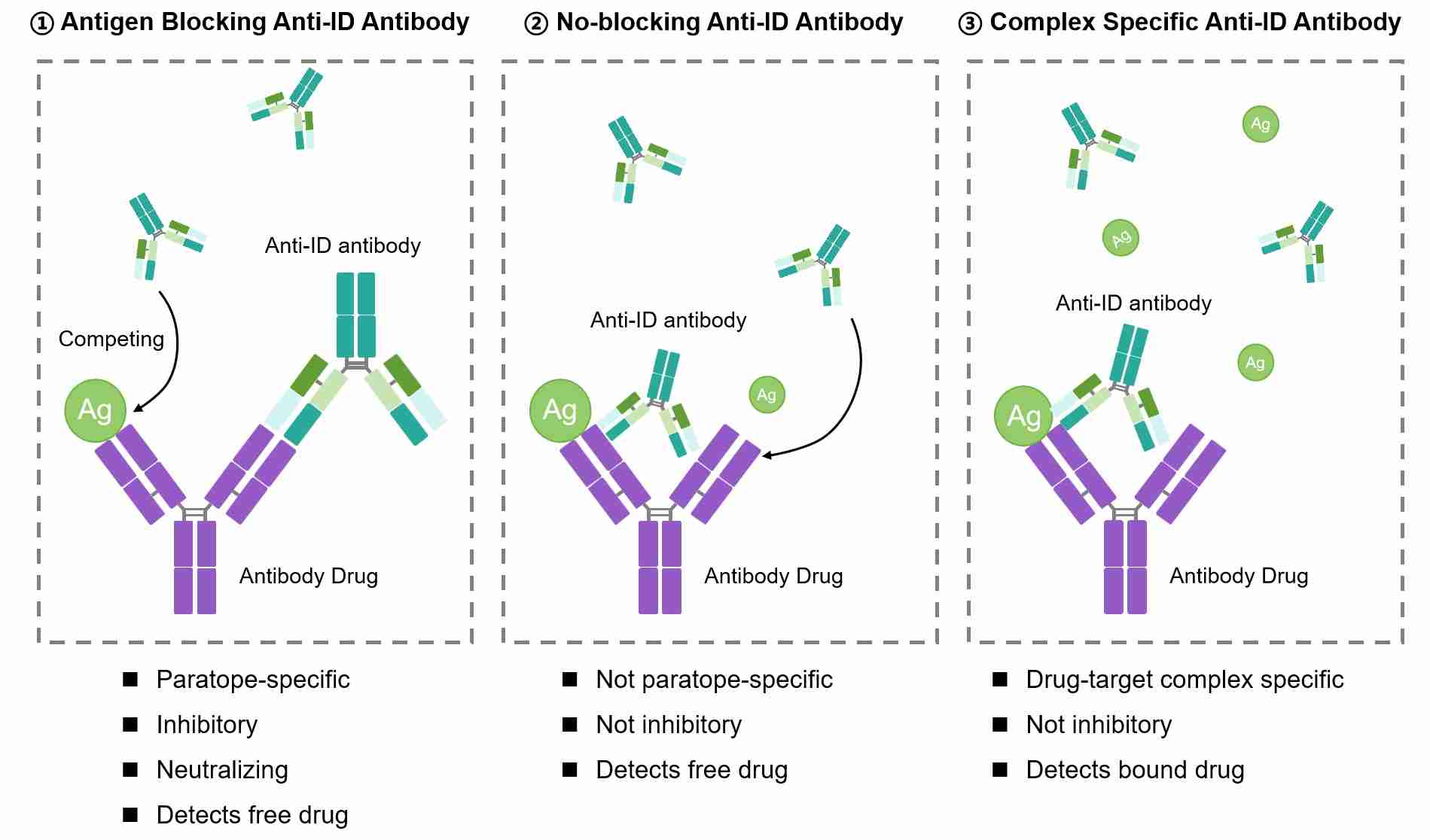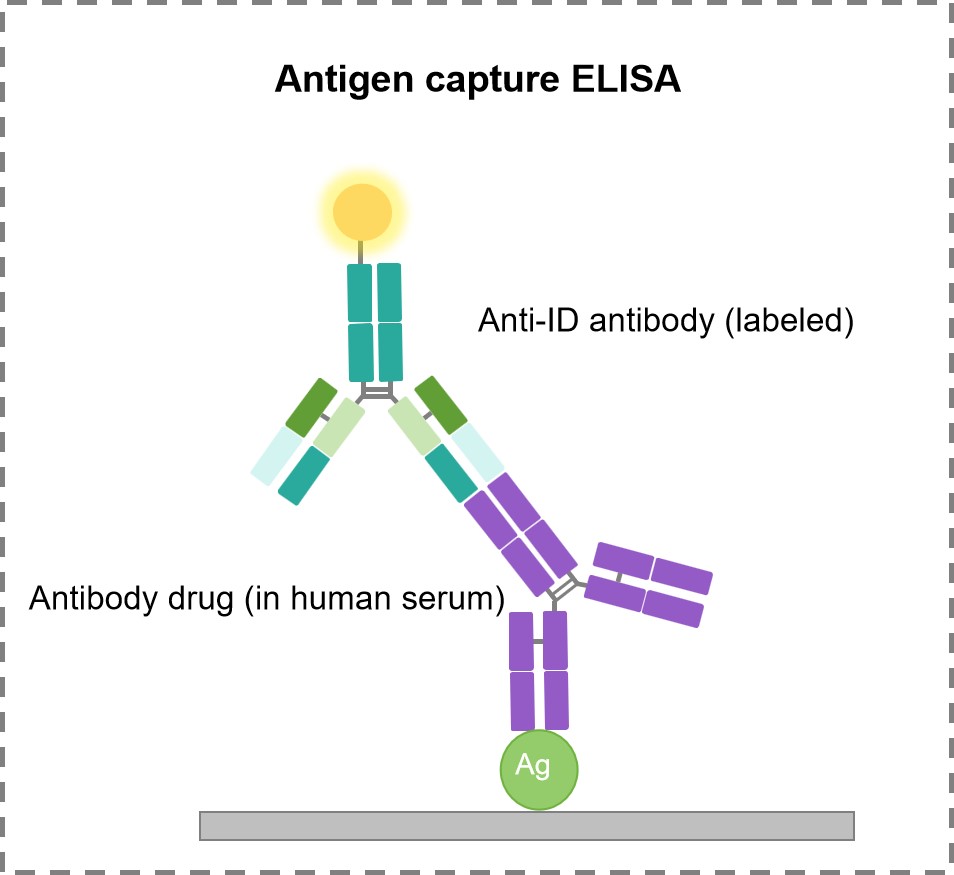Pharmacokinetic (PK) Antigen Capture ELISA Measuring Bound Drug Exclusively
Capture Enzyme-linked Immunosorbent Assay (ELISA)
ELISAs can be performed with a number of modifications to the basic procedure. Besides direct adsorption to the assay plate, the immobilization of the antigen of interest can be also accomplished by indirectly via a capture antibody that has been attached to the plate. The antigen is then detected either directly (labeled primary antibody) or indirectly (labeled secondary antibody). The most powerful capture ELISA assay is the sandwich format.
Anti-Idiotype Antibodies
Anti-idiotype antibodies (anti-IDs) are antibodies that bind to the variable region of another antibody, which makes it a very powerful tool for antibody drug development, especially for pharmacokinetic (PK) and immunogenicity studies. Anti-IDs could be specifically designed to detect the antibody and its biosimilar. Extensive in-house testing such as bridging assay, flow cytometry, binding inhibition and direct ELISA could be used to confirm the specificity and functionality of anti-IDs. Based on different properties and binding modes, anti-ID antibodies can be classified into the following three types.
- Type 1: Type 1 anti-ID antibody is antigen blocking specific which binds to the paratope of the therapeutic antibody and competes with its target antigen. Therefore, this format of anti-ID antibody will only detect free antibody drug. Click here for Pharmacokinetic (PK) Bridging ELISA Measuring Free Drug.
- Type 2: Type 2 anti-ID antibody is non-blocking specific which binds near the paratope but still allows the antibody to bind its target antigen. This antibody is not inhibitory and thus can be used to detect both free and bound drug in serum. Using a combination of the different types of drug-specific anti-IDs offers the assay developer enhanced flexibility and better overall information about the availability and the state of the antibody drug candidate. Click here for Pharmacokinetic (PK) Bridging ELISA Measuring Total Drug.
- Type 3: Type 3 anti-ID antibody is complex specific anti-IDs which only binds specifically the antibody-target complex but not the unbound antibody or the unbound target. This type of anti-ID antibody is only able to measure target bound drug. A Type 3 antibody is used in an antigen capture ELISA to detect bound drug exclusively and avoids the bridging ELISA format. Click here for Protocol of Pharmacokinetic (PK) Antigen Capture ELISA Measuring Bound Drug Exclusively and Troubleshooting of Pharmacokinetic (PK) Antigen Capture ELISA Measuring Bound Drug Exclusively.
- Ideal for pre-clinical research and antibody drug development studies
- Allow monitoring of therapeutic Abs in samples
- Allow detection of Ab biotherapeutics that closely resemble circulating human immunoglobulin (Ig)
 Fig.1 Types of anti-ID antibodies.
Fig.1 Types of anti-ID antibodies.
Why use anti-IDs?
Capture ELISA Measuring Bound Drug Exclusively
By using anti-IDs, various forms of antibody therapeutics can be easily tracked and quantified in patient urine, serum, blood or other bodily fluids. The type 3 anti-ID antibody mentioned above is frequently used in an antigen capture ELISA. The schematic diagram of the PK antigen capture ELISA measuring bound drug is shown in Figure.2. Different from measuring free or total drug, the anti-ID antibodies used in measuring bound drug are non-inhibitory and specific for drug-target complex.
 Fig.2 Schematic diagram of antigen capture ELISA measuring bound drug exclusively.
Fig.2 Schematic diagram of antigen capture ELISA measuring bound drug exclusively.


